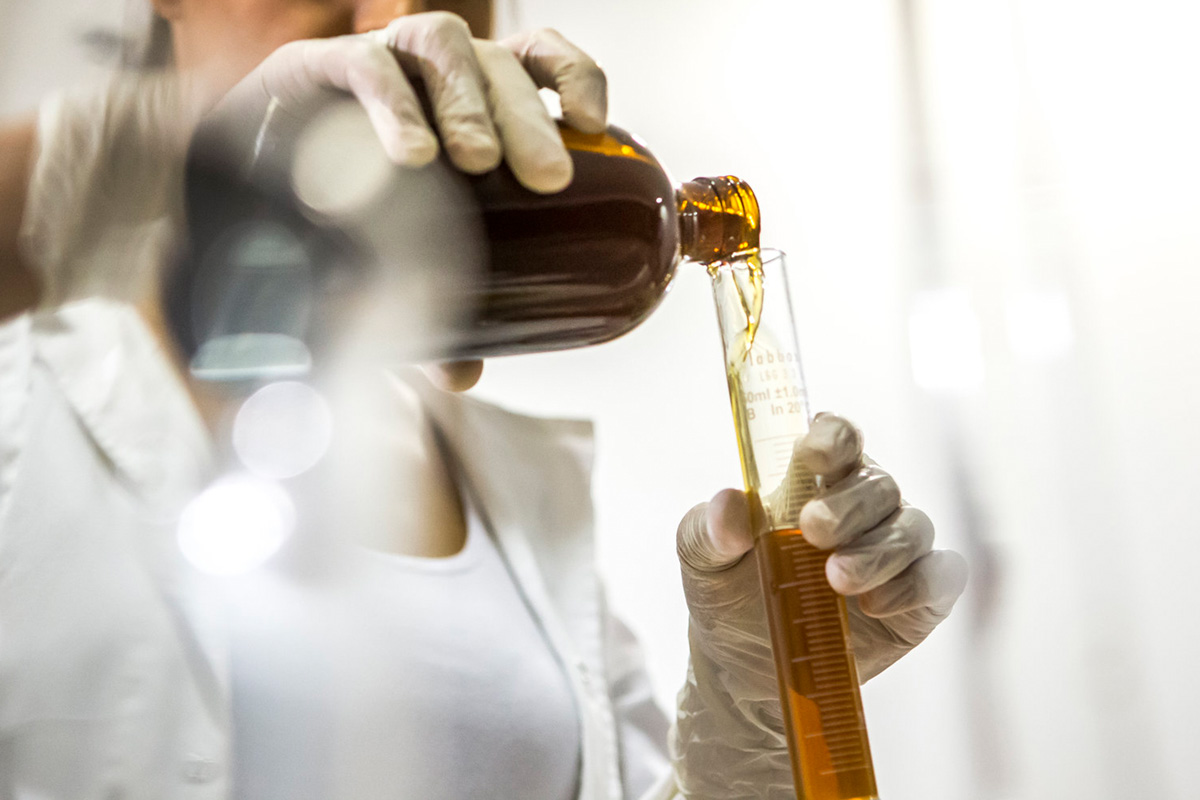CBD and THC are both found in the cannabis plant, and they have the same chemical formula. However, because they have a slightly different arrangement, THC has a psychoactive component, and CBD doesn’t.
The legality between the two varies as each state has its own laws regarding cannabis, yet CBD produced from hemp is legal at a federal level.
CBD also has more research done around its therapeutic benefits, while there’s less research on THC. Both cannabinoids have therapeutic potential, but more research is needed to understand how they affect human health.
Here are the main differences between CBD and THC.
What’s the Difference Between CBD and THC?
CBD and THC (tetrahydrocannabinol) are the main cannabinoids present in the cannabis plant. They are present in both hemp and cannabis, which is more casually known as marijuana.
Hemp has higher concentrations of CBD and trace amounts of THC, and marijuana has higher concentrations of THC and less CBD. However, certain strains of marijuana have been bred to produce high levels of CBD and low levels of THC.
Molecular Arrangement
Because of its molecular arrangement, THC has a psychoactive effect on users that produces the well known “high” associated with cannabis use; this intoxicating effect is also what makes it a Schedule 1 classified substance. CBD doesn’t have the same psychoactive quality, which is the main reason why it is legal at the federal level.
Customize the look of your media by making it widescreen or small and easily align media inside your posts.
Legality
Although the legalization of marijuana is becoming more prevalent, there is a lot of variation from state to state in the US, and the regulations around CBD products are continually changing. CBD products are legal at the federal level but illegal in some states.
For THC, it is still illegal at the federal level and is under the Controlled Substance Act, which means that you can get possession charges for having THC (1). There are variations to its legality from state to state, such as Colorado, where marijuana is legal for medical and recreational use.
What are the Benefits of CBD?
There are minimal adverse side effects when taking CBD, and large doses are generally well tolerated (2). CBD has risen to popularity recently because it has been shown to help reduce chronic pain, inflammation, and may even help with other conditions, including anxiety and multiple sclerosis (MS) (3).
Furthermore, research shows that CBD may counteract some of the adverse effects of THC (4). However, with many of these studies, they lack solid study design and could be done better, so there’s still a lot to learn.
What is known is that CBD has proven to be effective in severe conditions such as Dravet and Lennox-Gastaut syndromes as well as for treating epilepsy (5).

What are the Benefits of THC?
THC has been used to help with pain, low appetite (in people with anorexia, or those suffering from a loss of appetite due to cancer treatment), anxiety, nausea, and sleep disorders such as insomnia.
While there definitely are benefits and medicinal uses for THC, it has not been studied as intensively as CBD for a few reasons, including its intoxicating effects and ever-changing legal status (both of which can make medical research more challenging). Though, the stigma around THC and its intoxicating qualities are quickly changing as it becomes legal in more places.
Side Effects
There are very few adverse effects of CBD, and large doses of CBD are well tolerated (6). However, there is evidence of potential CBD side effects, specifically concerning negative drug interactions causing nausea and vomiting (7).
If you take other medication, it’s essential to check in with your doctor to ensure CBD isn’t going to negatively interact with anything.
Because of the psychoactive quality that THC has, there are often temporary side effects associated with it, such as dry mouth, red eyes, slow reaction time, and memory loss. Even though the results vary from person to person, these side effects can be unfavorable.
High usage of THC may cause long-term adverse psychiatric effects, which are especially prominent in adolescents. Chronic cannabis use can put specific individuals at risk of developing psychiatric conditions such as schizophrenia (8).
Product Quality
Although THC is still technically “illegal,” there is a wave of CBD products being released and marketed despite not having FDA approval.
Many of these products are unregulated and may not have accurate labeling or dosage suggestions, which can be problematic. Even though CBD products are legal, if the THC content in those products is under 0.3%, mislabelling can put the consumer at risk of taking an illegal substance when the percent is unknowingly higher (9).
It is also important to be aware that the production and extraction of CBD products are largely unregulated, which may lead to some sources of CBD being contaminated with harmful pesticides, heavy metals, and bacteria.
These contaminants can be carcinogenic and can pose a serious risk to the consumer. It is essential to know where your products come from and the safety measures that have been put into place to produce the product. We pride ourselves in our testing and transparency, and you can find all our lab results here.
The Bottom Line
There are differences between CBD and THC, mainly around the effects they have on the body and the legality of the product.
CBD products produced from hemp are legal, but non-regulated practices can result in mislabelling and unsafe production methods, leading to contaminants getting into the product. Always be sure to purchase a product that is laboratory tested, so you know what you’re getting.
Before purchasing any CBD products, you should consult with your doctor and make an informed choice about the product(s) you’re considering using.
|
**Standard Disclaimer: CBD is not FDA-approved. We make no such claims that using our products will guarantee relief. Moreover, research regarding CBD is still ongoing and in the early stages.**



